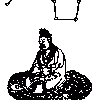-
Content count
319 -
Joined
-
Last visited
-
Days Won
1
Everything posted by damdao
-

In Which book does Wang Liping write about this memory exercise?
damdao replied to markern's topic in Daoist Discussion
Of course, I will not play this game. Texts attributed to ancestor Lü are attributions. There are many of them not only the two foundational texts. Besides youasked me in the contexts of daoist schools not in the context of alchemy nor in the constext of Lü-Chuang tradition. -

In Which book does Wang Liping write about this memory exercise?
damdao replied to markern's topic in Daoist Discussion
This is the standard phrase for fasting in daoism, bigu, avoiding grains. -

In Which book does Wang Liping write about this memory exercise?
damdao replied to markern's topic in Daoist Discussion
I completely agree with you: it is not a primary method. In fact, in the copied text I provided, it is merely a step within a broader vehicle. One uses it after completing preparatory work in order to learn how to function without food. Again, "not eating" is Bigu, and Bigu encompasses many levels. Only in the final steps do you literally stop eating; in the earlier stages, you may consume vegetables, fruits, almonds, and similar foods. In other words: it is a tool after one has already nourished life (Ming) so that they could get along without food. Regarding texts... you are leveraging the textual evidence card. Well, you can research ancient texts as part of historical research, or ask Daoist practitioners, which would fall under anthropological research. I admit I was overly broad in my original statement. I said "all Daoist schools," so even if you find just one that does not follow fasting practices, you could invalidate my argument. Therefore, as a good Confucian scholar of old, I must reflect on my stance and amend my statement. Perhaps not "all schools," but "a looooooooot of Daoist schools." You could start with Zhengyi for ritual purity. I have anthropological studies somewhere, even contemporary medical research, but I currently have little time. For medical research in contemporary contexts, you can consult PubMed (e.g., https://pmc.ncbi.nlm.nih.gov/articles/PMC8258074/). Moreover, you can refer to Despeux's article, "Gymnastics, the Ancient Tradition," p. 225; specifically on fasting, see p. 247 (from Taoist Meditation and Longevity Techniques, Kohn and Sakade (eds.)), where she analyzes the fasting tradition since the Han Dynasty. If you seek ancient texts, you could begin with Baopu Zi by Gehong. After denying fasting as a primary method (a point on which we agree), he states: 若欲服金丹大藥,先不食百許日為快。 ("If you want to ingest the great medicine of the golden elixir, stop eating for one hundred days to achieve better results.") Baopu Zi, Inner Chapters, Miscellanea For further details, you can explore the Song Dynasty encyclopedia Yunji Qiqian, vol. 60 (and there are additional volumes, which I will investigate later). You can access it here: 《云笈七签》. Volume 60 states something along these lines: In the Way of the Immortals, abstention from grains is an essential method. To achieve this, one must ingest qi. Ingesting qi first requires purity; then go to a pure chamber and calm your heart. The optimal period is 14 days. 夫求仙道絕粒為宗,絕粒之門,服氣為本,服炁之理,齋戒為先,當持齋戒,然揀好日,晏靜一室,安置床席其齋以心清意靜,無諸躁動,正可二七日。 (Yunji Qiqian, vol. 60, Various Families' Qi Techniques, sect. 5) https://ctext.org/wiki.pl?if=en&chapter=2545425 -

In Which book does Wang Liping write about this memory exercise?
damdao replied to markern's topic in Daoist Discussion
Sorry to say this, folks, but 'not eating' is a practice present in all Daoist traditions. This practice, known as Bigu, is performed at various levels and in different contexts, often accompanied by specific exercises that complement it. So, if you're looking for someone or something to blame, you might want to direct your attention to the Daoist schools themselves. -

In Which book does Wang Liping write about this memory exercise?
damdao replied to markern's topic in Daoist Discussion
While it is true that the exercise appears in Pythagorean cultivation as described in the Golden Verses, the Longmen version represents a structured system. What was shared in the previous posts is the core, but it is important to note that there are additional steps involved. Naturally, if you are intellectually honest (and I am not suggesting otherwise), you might wish to debate the origins of this exercise. However, it seems plausible that its source has been obscured by the mists of history. p. 175, Daoist Internal Mastery, ThreePines Press -

Using DeepSeek to translate Taoist classical alchemical texts
damdao replied to exorcist_1699's topic in Daoist Discussion
It is true that today IA is far better than the previous web translators but you need to know wenyanwen and neidan in order to check every sentence. It cuts the time but if you can control the process. What you cannot do with IA is have accurate quotes or cross references to other texts. IA keeps generating non existing texts as actual texts and quotes. For real texts, the old ctext.org search engine or kanripo.org are the best. -
The practice of the three immortalities or trascendencies. It is what Sinai wants to learn.
- 205 replies
-
- 2
-

-

-
- wang liping
- yinxian methods
-
(and 4 more)
Tagged with:

